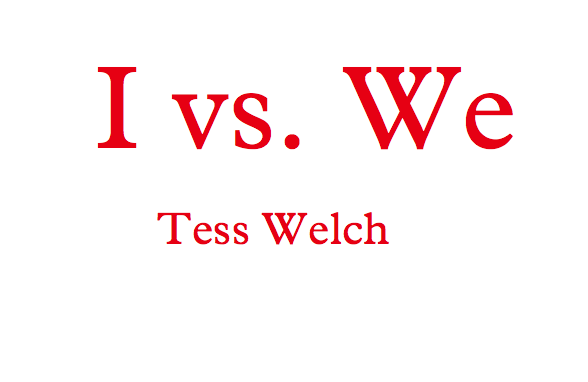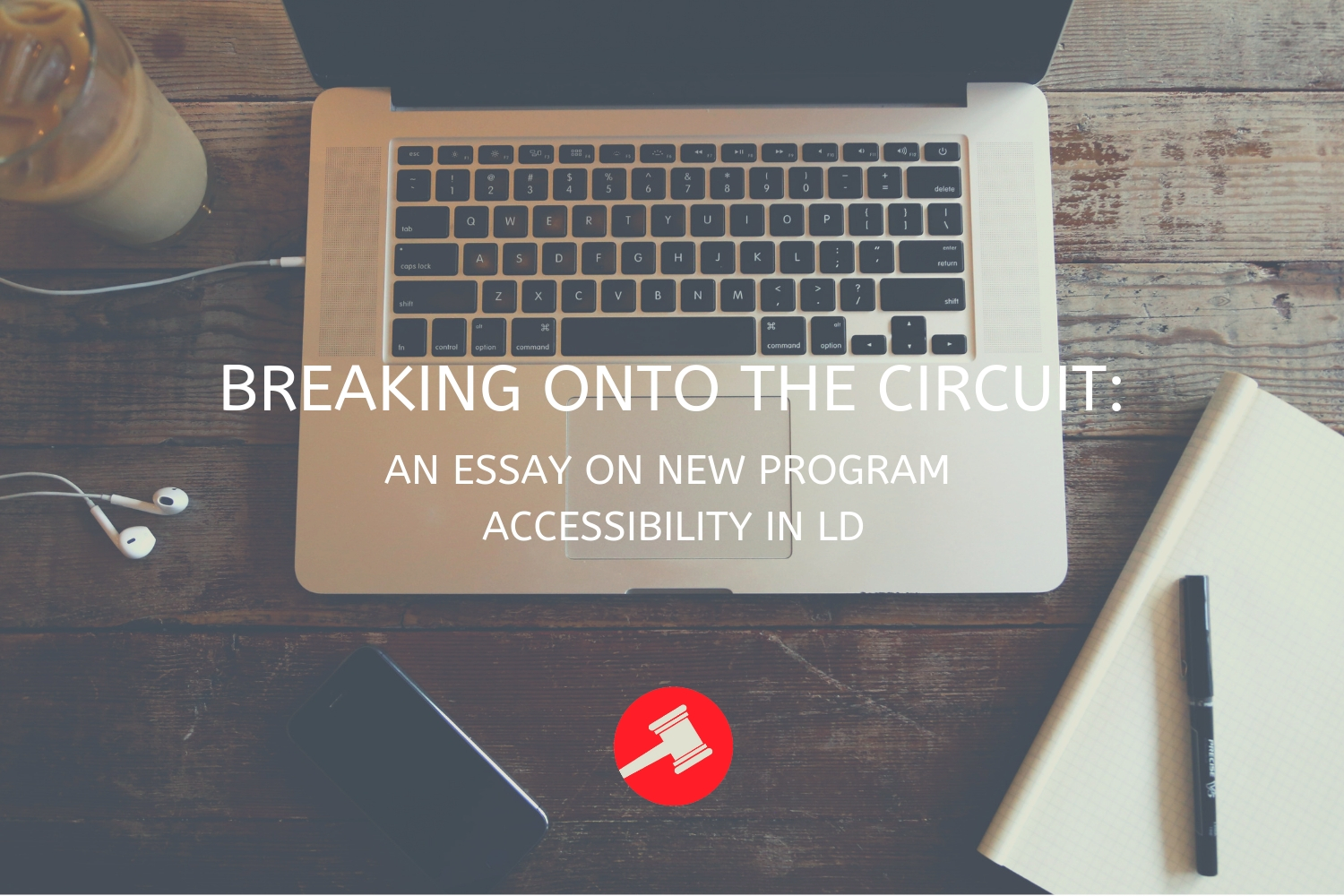Defense of the First-Person Plural (Tess Welch)

I’ve personally seen and heard a lot of snide remarks about LD debaters referring to themselves in the plural, for example, saying “we advocate…” This probably arose from LD debaters mimicking policy debaters, policy debaters having success in LD, LD debaters going to policy camp, or just hearing other people do it, hating it for a while, and then doing it on accident. In this short article, I hope to defend the first-person plural in LD and argue that it should not be punished or looked down upon. First, I claim it is a more accurate description of the joint thought and effort that goes into debate rounds and a debater’s success. Second, it may connote more power and authority than the first-person singular. Third, it makes it easier to consistently use gender neutral pronouns. Lastly, it’s just semantics, so we really should ignore it and focus our thoughts on something more productive.
Debate can be a very stressful activity, but one of the things I’ve always cherished are the wonderful connections – I’ve made friends from all over the country and can see them every weekend! LD may be perceived as an “individual” debate event since we don’t have partners, but it really is more of a team event than the NSDA rules let on. Debaters have school teammates, lab leaders, school coaches, private coaches, reddit debate groups, prep groups, etc. Even the loneliest lone wolves – despite their many hardships – have someone they can talk to about debate. For a community of supposedly antisocial kids, we do a remarkable job of banding together, and all of these people involved help shape us as debaters. In a sense, they are all a part of the person who advocates the plan. If a coach and I spend a week to write an aff, why would I say “I advocate?” The first-person plural recognizes the work of my coach and how they back me up. It also connotes the history, the unique intersections and cross-overs many teams have gone through to get where they are today. Former policy debaters who moved to LD, who perhaps lost their partner or policy coach, should not be punished over a little grammatical correctness. In those circumstances, something as small as a word can add a sense of normalcy in the hectic life of a high school debater.
Defending your position from a starting point of an individual decision seems weaker, all else equal, than using we and us. Perhaps we subconsciously ascribe more power and authority to groups; that is, if more people want something, we might be more likely to go along than a single person. If an opponent consistently attacks an argument with the second-person plural, “you say…” or “you messed up” or “you dropped…” then the first-person plural could be a way to distance oneself from the alleged mistake and mitigate the perceptual loss.
Although debate is a discussion of ideas, our discussion should never be exclusionary. A very common mistake I’ve heard is debaters assuming the pronouns of their opponents and judges. As a debate community, we have moved more towards gender neutral ways of addressing people, whether it is genuine or just for denying an easy K link, it is a big change. I’ve seen old block files from local schools from just five or six years ago, and the majority of the frontlines contain he in them except for the few blocks to feminist positions which contain she. The usage of they/them is often denounced as a plural way to recognize a singular person. Whether or not that’s true as a matter of English grammar[1], it is the widespread perception, and we ought to strive to reverse it. If we accept the first-person plural we or us, the community might also be more comfortable overlooking the supposed grammar issue in the context of people who prefer they/them pronouns. This is essential for everyone to feel like they can participate and their voice can be heard on equal footing.
Finally, a lot of people in the debate community seem fixated on small things like the phrasing debaters use in round. Focusing time and effort in your paradigm, between rounds or in RFDs on mere semantics is a waste of the revolutionary potential we could have. Imagine a world where judges’ paradigms didn’t list pet peeves about pen clicking, standing preferences or first-person pronouns, but instead discussed meaningful things debaters and teams do. If we invested in making the community more inclusive, for instance by eradicating micro-aggressions, debate could be much better.
LD debaters can use first-person plural pronouns or not. It doesn’t really matter, and that’s the point. Some of us like it, and some of us don’t. At the end of the day, we’ve probably spent enough time criticizing the dreaded we.
[1] https://en.oxforddictionaries.com/grammar/using-they-and-them-in-the-singular



1 Comment
thank god someone finally said it in an actual article, shoutout to you, Tess